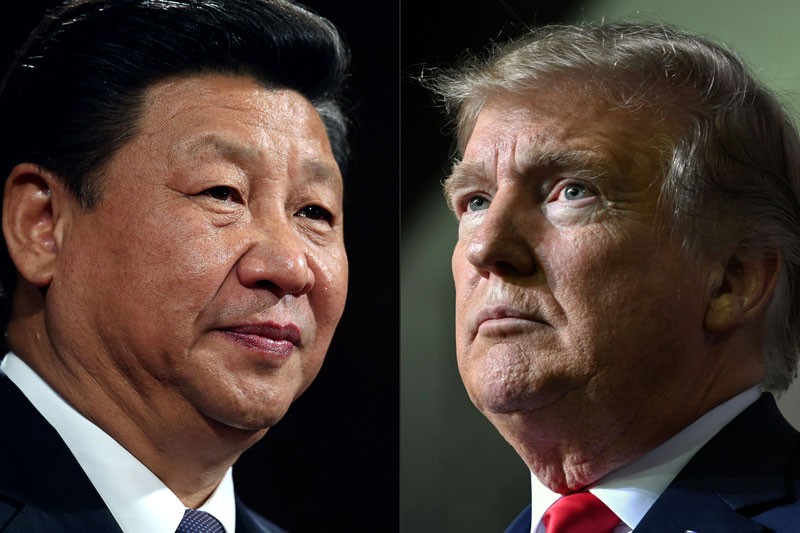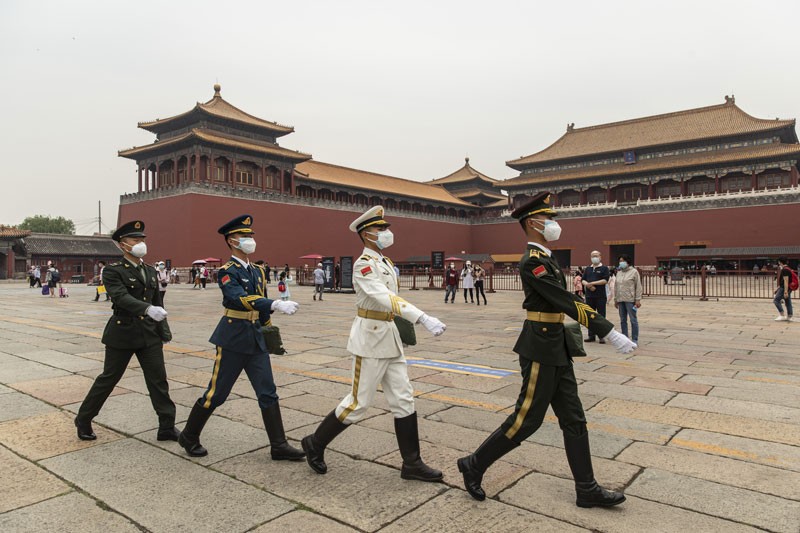When most cancers researcher Juan Tang took refuge from the US Federal Bureau of Investigation (FBI) at the Chinese consulate in San Francisco in July, she drew countrywide interest. Days later, the FBI arrested Tang — a Chinese nationwide who was on a months-lengthy investigation assignment in the United States — on fees of concealing her position as a Chinese armed forces officer from the US authorities. Tang has considering the fact that entered a not-responsible plea and, as of early September, is in custody in California, nevertheless her crew of attorneys is arguing for her to be launched even though she awaits a jury trial.
About the time of her arrest, the US authorities declared the arrests of a handful of other Chinese scientists for allegedly hiding ties they had to China’s army on visa applications. Scholars of US–China coverage say that the arrests mark a new front in the United States’ struggle from foreign interference in its universities and labs, in which federal government officials are increasingly scrutinizing researchers’ hyperlinks to China’s People’s Liberation Army (PLA).
Experts with ties to the Chinese army have been visiting the United States for several years, states Brad Farnsworth, vice-president of the American Council on Education and learning in Washington DC — but only now are officials “really seeking very thoroughly at the background of the individuals who occur right here, specifically from China”.
Precisely how the FBI and the US Department of Justice (DoJ) are focusing their investigations remains unclear, but literature analyses — such as a single from Nature — are beginning to illuminate how widespread back links are among US scientists and Chinese scientists with prospective navy ties. The absence of concrete data from US authorities has induced worries that some researchers may be unfairly accused of espionage.
Numerous of the top hospitals in China, for illustration, are affiliated with the armed forces, claims Mary Gallagher, a political scientist who scientific studies US–China relations at the University of Michigan in Ann Arbor. “And so by default, if you’re a medical doctor at one of those hospitals, you might be heading to have an affiliation with the Chinese armed forces.” That affiliation doesn’t routinely suggest that if you are collaborating with a US researcher you’re engaging in espionage, she suggests.
A new chapter
The arrests arrive as escalating tensions among the United States and China in excess of the past couple years have more and more spilled about into study. In 2018, US President Donald Trump’s administration announced the China Initiative, aimed at halting China from thieving intellectual house and systems from US corporations and investigate labs. But right until not long ago, steps by the US enforcement agencies had largely involved taking into custody experts who unsuccessful to declare overseas analysis dollars to US funding organizations who also supported them.
The US government’s the latest target on researchers’ inbound links to the PLA has arisen along with Chinese President Xi Jinping’s ‘military–civil fusion’ strategy, in which college study and corporate intellectual assets are getting tapped for military use. The system has also prompted Japan and Australia to acquire methods to avert China from co-opting technological know-how and mental residence made in worldwide educational collaborations. And in May perhaps, the Trump administration issued an get that would reject visa purposes from researchers and students from some army-linked Chinese establishments, barring these people from moving into the United States.
The arrests declared in July all included accusations of visa fraud, in accordance to officers at the DoJ and the FBI.
Tang experienced been a browsing researcher at the Division of Radiation Oncology at the College of California, Davis, because January. DoJ officials claim Tang denied serving in the navy on her visa application — but that she is a “uniformed officer” in the PLA Air Power, a assert primarily based in portion on photographs of her in a armed forces uniform that they submitted along with the rates. The agency also claimed that the other researchers whose arrests were being declared in July — Xin Wang, a postdoctoral researcher studying being overweight and metabolic rate at the University of California San Francisco Chen Track, a neurobiologist viewing Stanford College and Kaikai Zhao, a graduate scholar exploring device mastering and synthetic intelligence at Indiana College Bloomington — experienced past or present appointments in the Chinese military services that they misrepresented on their visa apps.
Individuals scenarios adhere to the demand this January of Yanqing Ye, a physics researcher at Boston University in Massachusetts, who the United States also claimed hid an energetic appointment in the PLA.
Like Tang, Wang has entered a not-responsible plea. Malcom Segal, an lawyer in Sacramento, California, who signifies Tang, claims that “her situation has no romantic relationship by any means with any of the other situations charged by the government”. Attorneys for Wang and Song declined to remark to Character Zhao’s lawyer did not reply to requests for remark. All 4 situations are ongoing. Character was not able to get hold of Ye. The FBI thinks that Ye is now in China a Boston University spokesperson reported that Ye is not now affiliated with the college.
The extent to which US study is basically staying funnelled to the Chinese navy, and how to block it meaningfully and reasonably if it is, remain unclear, say specialists — as do the parameters the United States is now working with to label foreign researchers and collaborations a risk.
In accordance to court filings, Zhao was working on military radar engineering. But usually, the 5 scientists’ fields of analysis on your own — neurobiology, mobile biology, drugs, physics, and device mastering — would not raise alarm from a nationwide security standpoint, industry experts say.
Federal agents have not been transparent about what form of US-China collaborations they perspective as risky. Glenn Tiffert, a investigate fellow at the conservative Hoover Establishment, a public coverage consider tank at Stanford College in California, suspects that there are lots of other instances that the federal government deems problematic from a national protection point of view.
A tangled world wide web
To estimate the scope of the US government’s fears, in July, Tiffert and other colleagues at Hoover analyzed US inbound links to 7 universities in China, recognised as the ‘Seven Sons’, that have been started by or assisted the army just before turning out to be civilian centres of increased education and learning.
In July, the staff introduced an investigation of Chinese- and English-language academic reports from 2013–19 that had been stated in a major Chinese science and technology publishing database. It uncovered 254 that ended up coauthored by at the very least just one scientist from a 7 Sons college and 1 from a US university the papers included a total of 115 US universities.
Tiffert emphasizes that none of the collaborations his staff observed was illegal, and hopes the review will persuade US analysis universities to re-believe which partnerships could be thought of problematic.
But an evaluation by Mother nature making use of the Dimensions database from Electronic Science, based in London, implies that links involving Chinese and US researchers are much more widespread than the Hoover report proposed. (Digital Science is section of Holtzbrinck, the the vast majority shareholder in Mother nature‘s publisher, Springer Nature). Analysing a bigger selection of investigation papers — over 100 million of them — in this globally databases, Mother nature uncovered additional than 12,000 publications from 2015–19 co-authored by scientists in the United States and at just one of the 7 Sons. Among the people, 499 authors experienced a dual affiliation with a US institution and a 7 Sons university and have been detailed on papers declaring grant funding from the NIH or the US Countrywide Science Foundation (NSF).
The Character investigation “confirms that the study ties involving China and the US are pretty deep”, claims Farnsworth. Tiffert states he’s not stunned by the effects simply because the Proportions database that Character utilised is greater and far more in depth.
Security regulations
But separating real threats from regular collaborations could be a problem, some industry experts say. It has not been abnormal for Chinese scientists with appointments in the army to go to the United States and get the job done on non-labeled projects, suggests Denis Simon, senior adviser to the president at Duke University in Durham, North Carolina. Simon led the Duke Kunshan University in China as vice-chancellor until July this yr. “To suppose a complete conspiracy is far too significantly from the reality,” he claims.
As military–civil fusion emerges as a flash issue for US officials, some stress that long term federal actions could be disruptive to universities and scientists. The Trump administration announcement in May well barring researchers and pupils affiliated with armed service-joined Chinese institutions from coming to the United States was criticized as much too broad. The purchase is envisioned to influence up to 5,000 opportunity new pupils from China, in accordance to Farnsworth. A person-third of overseas learners studying in the United States — about 370,000 pupils as of 2019 — are from China.
In typical, universities do not have rules that bar researchers with affiliations to the international army from operating with university scientists. But in the absence of nuanced federal pointers, institutions may well perfectly be compelled to take a fresh new search at these collaborations.
“There is no lengthier any position quo to go back again to,” says Farnsworth.


